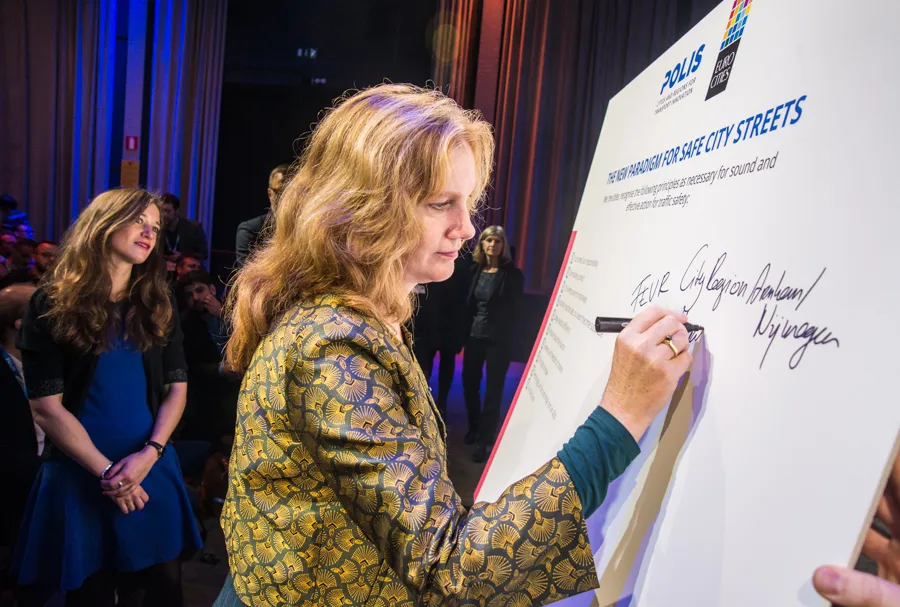As part of its support for the European target of halving road deaths by 2020, Tispol will use its annual Conference in Manchester on 6 and 7 October to call for better protection of vulnerable road users, with greater efforts to rid Europe’s roads of the most dangerous drivers.
Senior police officers, academics, policy makers and other road safety professionals will consider a range of specific issues during the two-day conference, including: Safer driving in later life; Fatigue in emergency service dr
October 5, 2015
Read time: 2 mins
As part of its support for the European target of halving road deaths by 2020, 650 Tispol will use its annual Conference in Manchester on 6 and 7 October to call for better protection of vulnerable road users, with greater efforts to rid Europe’s roads of the most dangerous drivers.
Senior police officers, academics, policy makers and other road safety professionals will consider a range of specific issues during the two-day conference, including: Safer driving in later life; Fatigue in emergency service drivers; Police strategies to reduce motorcycle casualties; Safer cycle commuter journeys Women drivers, alcohol and increased vulnerability.
Other conference messages include: Road safety targets are good - they unite all those groups working to reduce death and injury on Europe’s roads; Tispol wants to see political will restored across Europe, and a commitment from governments to avoid any further cuts to policing resources, which will allow police officers to enforce existing laws, investigate collisions effectively, and identify and sanction the most dangerous drivers; The result will be significant and sustained reductions in road deaths and injuries.
Tispol President Aidan Reid comments: “Traffic police have a vital role to play in reducing deaths and serious injuries on the roads of Europe. Central to this is the task of identifying and sanctioning those drivers who pose unacceptably high risks. They may be disqualified, uninsured, or simply have a flagrant disregard for the rules of the road which are there to help keep everyone safe.
“Robust systems are in place to deal with high-end offenders, but there needs to be effective enforcement and consistent, tough sentencing in order to provide a worthwhile deterrent.”
Senior police officers, academics, policy makers and other road safety professionals will consider a range of specific issues during the two-day conference, including: Safer driving in later life; Fatigue in emergency service drivers; Police strategies to reduce motorcycle casualties; Safer cycle commuter journeys Women drivers, alcohol and increased vulnerability.
Other conference messages include: Road safety targets are good - they unite all those groups working to reduce death and injury on Europe’s roads; Tispol wants to see political will restored across Europe, and a commitment from governments to avoid any further cuts to policing resources, which will allow police officers to enforce existing laws, investigate collisions effectively, and identify and sanction the most dangerous drivers; The result will be significant and sustained reductions in road deaths and injuries.
Tispol President Aidan Reid comments: “Traffic police have a vital role to play in reducing deaths and serious injuries on the roads of Europe. Central to this is the task of identifying and sanctioning those drivers who pose unacceptably high risks. They may be disqualified, uninsured, or simply have a flagrant disregard for the rules of the road which are there to help keep everyone safe.
“Robust systems are in place to deal with high-end offenders, but there needs to be effective enforcement and consistent, tough sentencing in order to provide a worthwhile deterrent.”









